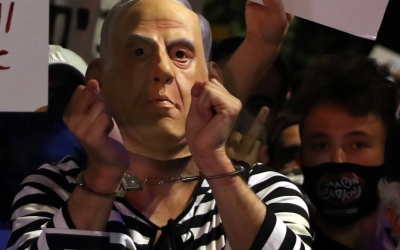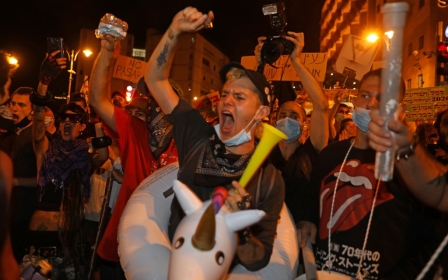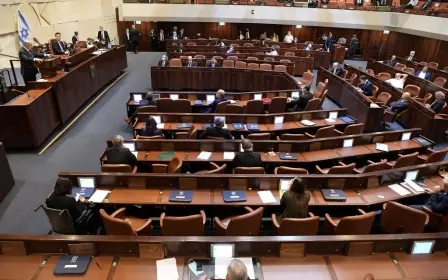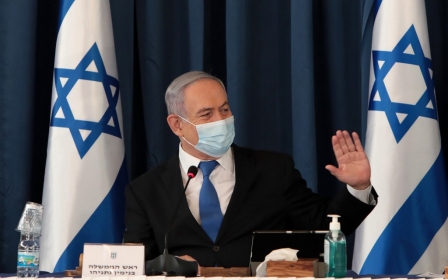Latest Israel protests keep up the pressure on Netanyahu
Thousands of Israelis protested on Saturday in Jerusalem and other cities including Tel Aviv, the latest in a series of ongoing demonstrations demanding Prime Minister Benjamin Netanyahu's resignation over his alleged corruption and his government's handling of the coronavirus pandemic.
In Jerusalem they protested outside Netanyahu's residence, holding up signs accusing him of corruption, a reference to the premier's indictment in January for bribery, fraud and breach of trust in three cases. He denies all the charges.
"We are fed up with the corrupt," some signs read, alongside others reading "Where are the morals? Where are the values?"
Protesters also slammed a law passed this week that gives the government special powers to fight the spread of the virus until the end of 2021.
On Saturday thousands of protesters also rallied in the coastal city of Tel Aviv.
Protests against the economic fallout from the pandemic have spread across the country in recent weeks. In some cases police have sprayed demonstrators with water cannon. On Thursday evening, Israeli police arrested 55 anti-government protesters for "disturbing public order" and "assaulting officers" at a demonstration in Jerusalem.
Protesters are also frustrated with the impact that virus-related curbs have had on the economy, with the unemployed and reduced-income families saying the government was not doing enough to help them.
Israel's unemployment figures jumped from 3.4 percent in February to 27 percent in April, before falling slightly in May to 23.5 percent.
Israel initially won praise for its response to the Covid-19 outbreak, but the government has come under criticism amid a resurgence in cases after restrictions were lifted starting in late April.
After seeing more than 1,000 new coronavirus infections a day in recent weeks, the government has re-imposed some restrictions, including closing bars, nightclubs and gyms.
The country has so far recorded 60,496 confirmed cases of Covid-19, including 455 deaths.
Middle East Eye delivers independent and unrivalled coverage and analysis of the Middle East, North Africa and beyond. To learn more about republishing this content and the associated fees, please fill out this form. More about MEE can be found here.





